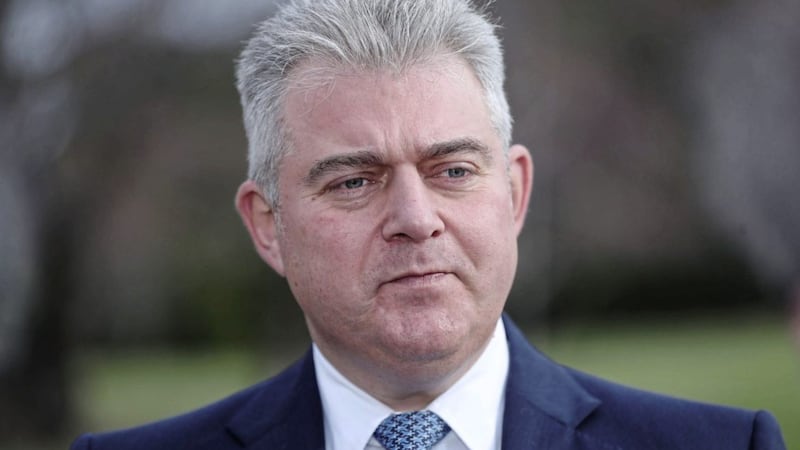The was never any doubt that a law giving Boris Johnson's government the power to override parts of the Brexit withdrawal agreement would pass its first hurdle in the Commons.
The prime minister has a huge majority, and could pass a law making it illegal not to wear blue on a Friday, and get it through parliament with little in the way of opposition.
This administration also benefits from the lack of knowledge that many of those sitting on the green benches have when it comes to this island, our complex politics and fragile peace.
While some have taken the time to research the subject, many more vote blindly without ever trying to understand why special measures for Northern Ireland are essential to preserve the open border we now enjoy.
Five former prime ministers have now criticised the Internal Market Bill, that will give Britain the power to breach the terms of the withdrawal agreement Boris Johnson made with the EU.
Specifically the Northern Ireland protocol, the compromise designed to allow the UK to leave the EU without jeopardising the Good Friday Agreement.
Brexit was never going to be good for the people of the north, economically, politically and in terms of community relations and building and preserving of our peace.
Theresa May's backstop was the least worst option on the table. She was never going to be able to pass that through parliament, handcuffed as she was to the DUP in a confidence and supply deal.
Boris Johnson's Northern Ireland protocol was an imperfect third place, but at least there was a framework for business to work towards.
The Internal Market Bill throws all that in the air and now once again, people are faced with chaos and uncertainty.
During a five-hour debate on Monday evening, Mr Johnson claimed the EU's current approach could lead to excessive checks and even tariffs on goods moving from GB to Northern Ireland.
These are checks that he agreed to as part of his 'oven ready' deal.
They are checks that will need to take place, that all experts repeated would need to take place, and yet when questioned Boris Johnson repeatedly said wouldn't happen.
At which point you have to think, either he hadn't read his own deal or had never intended to honour something on which he shook hands.
While the blatant manner in which this administration intends to breach an international treaty 'in a limited and specific way' should probably not come as that big of a surprise, the ongoing faith in his actions by sections of unionism remain baffling.
Boris Johnson is known for breaking promises.
Brexit remains primarily an English phenomenon, but the pursuit of it undermines the union the Conservative government claims to be protecting.
It is never going to be any good for the economy in Northern Ireland. The DUP's ongoing support for it remains an act of self harm that is difficult to comprehend.
Despite talk of a rebellion only two Tory MPs voted against the bill on Monday night - Sir Roger Gale and Andrew Percy - while a further 30 abstained.
Trade talks continue between Britain and the EU but they now take place in an atmosphere of bad faith and it seems difficult to see how Britain can be trusted to make a deal they intend to honour.
Former Attorney General Geoffrey Cox has been scathing of the bill saying: "No British minister should solemnly undertake to observe treaty obligations with his fingers crossed behind his back".
The Conservative MP added that the withdrawal agreement and "its attendant Northern Ireland protocol" represented treaty obligations to which the government "gave its solemn and binding word".
The Tories fought the law and in this case, the law lost.








